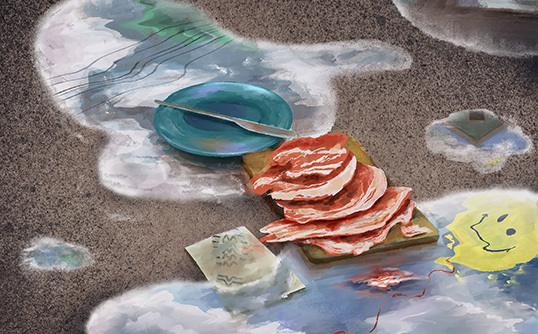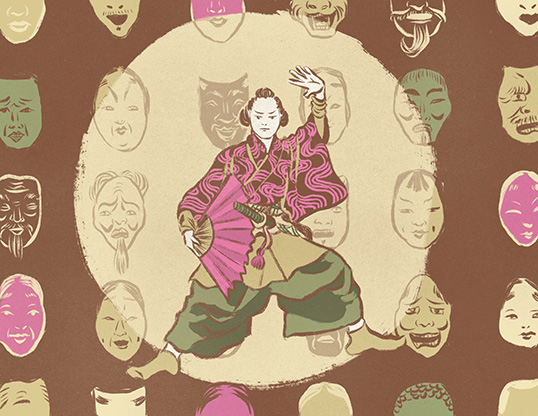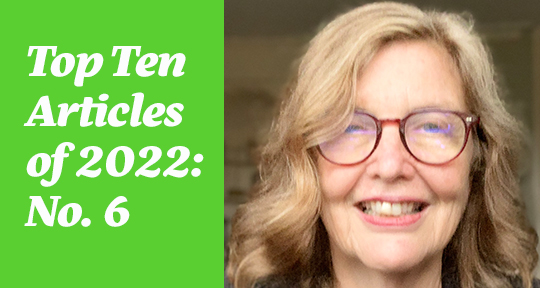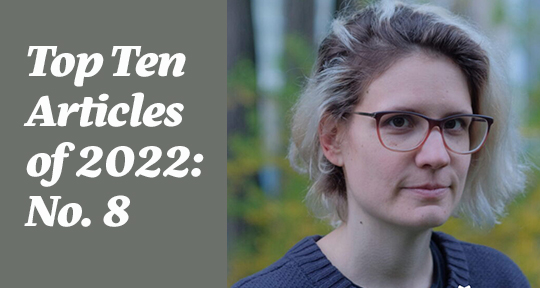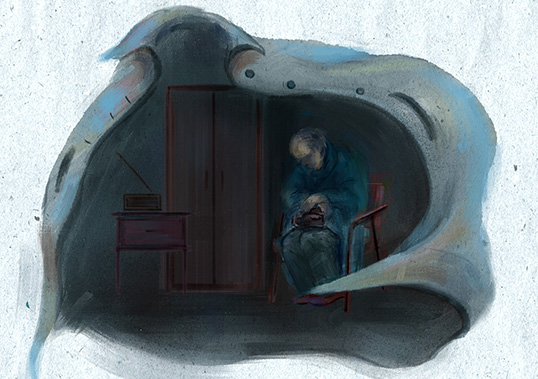And here is the moment you’ve all been waiting for! Perhaps unsurprisingly, given the attention that Korean literature has received all of this past year (LTI Korea reports that “Korean literature published overseas scored a total of four wins and nine nominations” in 2022), the top spot goes to a South Korean author: the 28 year-old Kim Su-on who made an appearance in our Winter 2022 issue via cotranslators Spencer Lee-Lenfield and Lizzie Buehler with her fittingly named short story “A Ray of Light.”
As a ray of light will momentarily illuminate the objects in the dark it passes over, so too do the nameless figures in Kim’s story come to life via impressionistic brushstrokes such as these:
Light drifts over the faces of the people lying down, asleep, inside their houses. They shrug off the blankets draping their bodies and, one or two at a time, wake up. Though they strain to remember the previous night’s dreams, the more they try, the faster the dreams vanish. They start each day without any such memories. A certain sadness has become the foundation of their days. Each person’s sadness differs in scale, and so each person passes the days differently.
Through “writing [that] fuses elegant, simple lyricism with startling, at times nightmarish visions,” a dystopian world is conjured with irrefutable logic. Plot is almost an afterthought: If there is a story at all, it centers on a nameless woman in a house that is surrounded by a forest littered with mute and directionless bodies, dead birds and animal carcasses. At the heart of this forest is a lake, which forms the backdrop to naked lovers who have never left the only place the light touches. Only the shadow of a man wrapped in a blanket remains in the darkness.
The wonder of this piece is in how the eerie images burn in your mind long after the story ends. “Once you read it,” add translators Lee-Lenfield and Buehler, who shared with us that they brought into English Kim Su-on’s “spooky irrealism” during the darkest days of the pandemic,“you can’t get it out of your eyes, your ears.” For this fact alone, ”A Ray of Light” is nothing short of a masterclass in worldbuilding.
That wraps up our end-of-year countdown! If you’ve enjoyed what we’ve brought you in 2022, please help us bring you more of what you love in 2023. In addition to these massive issues (only four remain to our big 5-0!), we’ll also keep bringing you weekly dispatches, fortnightly airmails, monthly book club selections, and quarterly educational guides—all of which we work so hard on behind the scenes on zero institutional support. Answer our commitment by becoming a sustaining or masthead member from as little as USD5 a month. Signing up only takes three minutes, but your support would mean the world to us, truly! See you on the other side of 2023!
REVISIT OUR MOST-READ ARTICLE OF 2022
*****
Discover more on the Asymptote blog:






